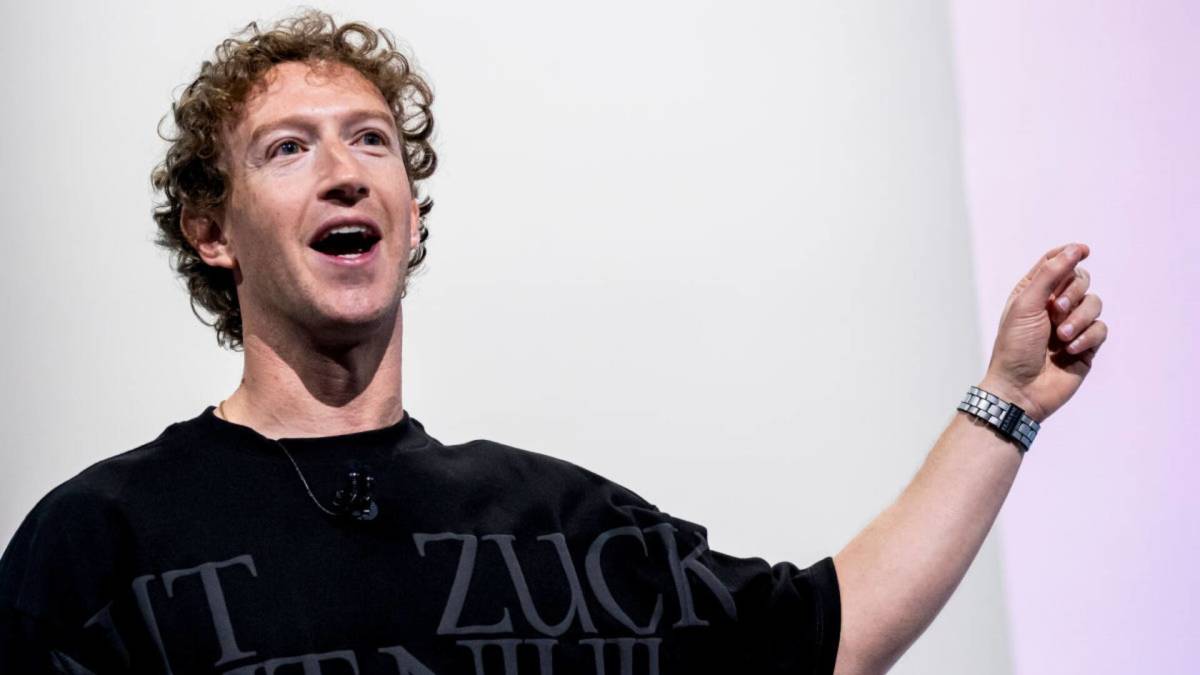The Rose Garden looked picture-perfect. But the most consequential moment that evening wasn’t part of the décor.
When President Donald Trump gathered the country’s most powerful tech leaders at the White House this week, cameras caught the usual photo ops, handshakes, and small talk. But behind closed doors, one executive said something that caught even his peers off guard.
Meta’s (META) Mark Zuckerberg didn’t posture or pontificate. He made a statement — quiet, calculated, and potentially era-defining.
The number he floated wasn’t a guess. It was a signal.

Image source: Morris/Bloomberg via Getty Images
Meta steps up as AI arms race hits U.S. soil
Meta has progressively increased its capital investment, but Zuckerberg’s current aim is unparalleled, even by Silicon Valley standards.
Zuckerberg informed President Trump and a group of other tech CEOs that Meta intends to invest “at least $600 billion” in data centers and AI infrastructure in the United States by 2028, according to The Information.
The conversation occurred during a closed-door meeting of top tech CEOs, including Alphabet’s (GOOGL) Sundar Pichai, Apple’s (AAPL) Tim Cook, and OpenAI’s Sam Altman, during which the president presented a renovated Rose Garden and purportedly addressed his administration’s shifting attitude on AI and cloud infrastructure.
Related: Top Apple analyst reveals exclusive supplier for foldable iPhone and Vision Air in $6 billion pivot
The statement comes only months after Meta boosted its 2025 capital investment projection to as much as $72 billion, a 68% increase above 2024. With comparable investment predicted for 2026, Meta’s trend points to a significant increase in 2027 and 2028 — as well as a larger change in where and how the firm is expanding its AI empire.
Zuckerberg’s move could redraw the AI map — and rewire investor expectations for Meta
It’s not just about the size of the capital outlay. Meta’s $600 billion investment might dramatically shift the location of the AI battle and the next age of tech domination.
Execution is really important. Meta has put up temporary tents for its data centers to speed up development, while employing top AI experts and keeping important equipment safe.
The timing in terms of international politics is also crucial. A few weeks ago, President Trump changed his mind on how to regulate AI and came up with a new plan to focus on supporting AI in the U.S.
By stating Meta’s ambitions in person, Zuckerberg positioned himself at the heart of politics, infrastructure, and innovation.
When it comes to money, the move is both hazardous and doable.
Meta’s success by the numbers: Q2 2025
- Revenues were $47.5 billion, a 22% rise from the same time last year.
- Net income increased 36% to $18.3 billion.
- Operating income rose 38% to $20.4 billion, which raised margins from 38% in Q2 2024 to 43%.
- Profits per share grew 38% to $7.14.
- Daily active users numbered 3.48 billion on Meta’s platforms, which is a 6% rise from last year.
- Ad impressions were up 11%, and average revenue per ad was up 9%.
The numbers demonstrate that Meta’s primary company is still making significant money, which helps CEO Mark Zuckerberg pay for the big growth of his data center and artificial intelligence.
But analysts may need to rethink their long-term margin and free cash flow predictions since capital expenditures will go up a lot.
If Meta gets even half of what it wants, it won’t be merely a social media firm anymore. It will be a strong AI system.
The risks for Meta, and how AI rivals may respond
Washington may have been impressed by Zuckerberg’s $600 billion offer, but it has also made things more difficult in Silicon Valley. And not everyone is happy.
Politically, this big rise in AI infrastructure might bring back fears about surveillance, antitrust, and data centralization.
People are already upset with Meta’s social media sites due to privacy concerns. If the White House backs AI infrastructure even more, it might lead to further legal and regulatory scrutiny in the U.S. and throughout the world.
Related: Inside Google’s Quiet Rebuild: Changes Outpace AI Hype
Next, there is the danger to the infrastructure. Building AI clusters with many gigawatts of power is expensive and hard to run. The idea might be delayed or stopped by grid restrictions, property acquisition problems, or delays in state-level regulations.
And it’s clear that hurrying to put up “data center tents” to avoid development delays may have a consequence.
Meta’s competitors are moving ahead with AI
- Alphabet is ready to spend more on custom silicon and distributed training networks as it quietly builds up its AI infrastructure, earmarking up to $85 billion for 2025 capital expenses.
- Apple, on the other hand, is creating a lane for AI that focuses on privacy and uses less computing power but may be better for the brand.
- Microsoft MSFT is a wild card that might have infrastructure as good as or better than Meta’s, because of its partnership with OpenAI and the power of Azure.
- Amazon, which didn’t go to the White House event, is still working on its Bedrock and Trainium initiatives to make AI a bigger part of Amazon Web Services.
The fight over weapons in the AI war is happening all across the world, on many fronts.
It’s not done yet, and Zuckerberg may have just forced competitors’ hand by making his $600 billion figure public.
Related: Jensen Huang Isn’t Sweating Nvidia’s Slowdown For This $4 Trillion Reason
#Mark #Zuckerberg #drops #billion #surprise #White #House #dinner